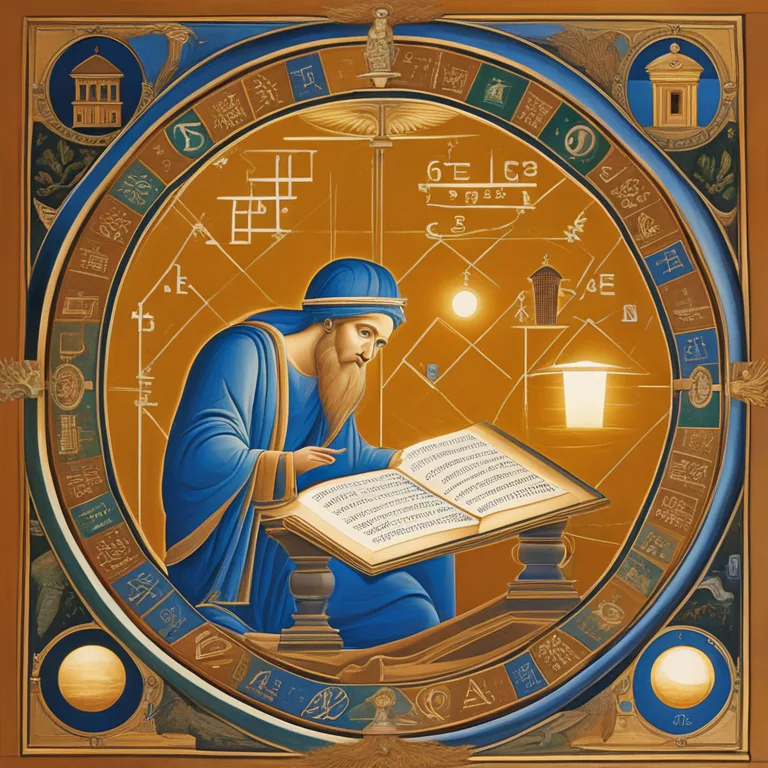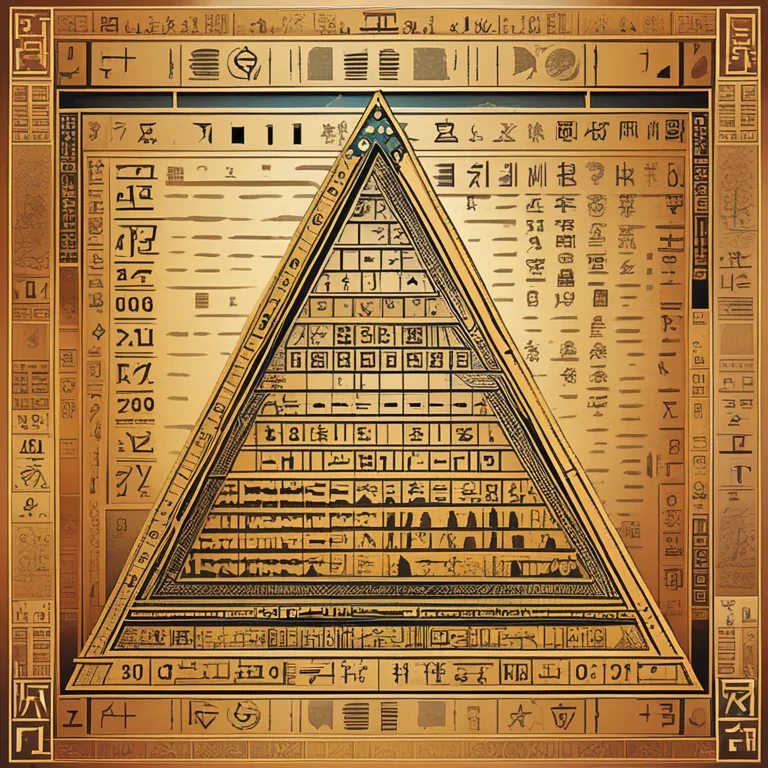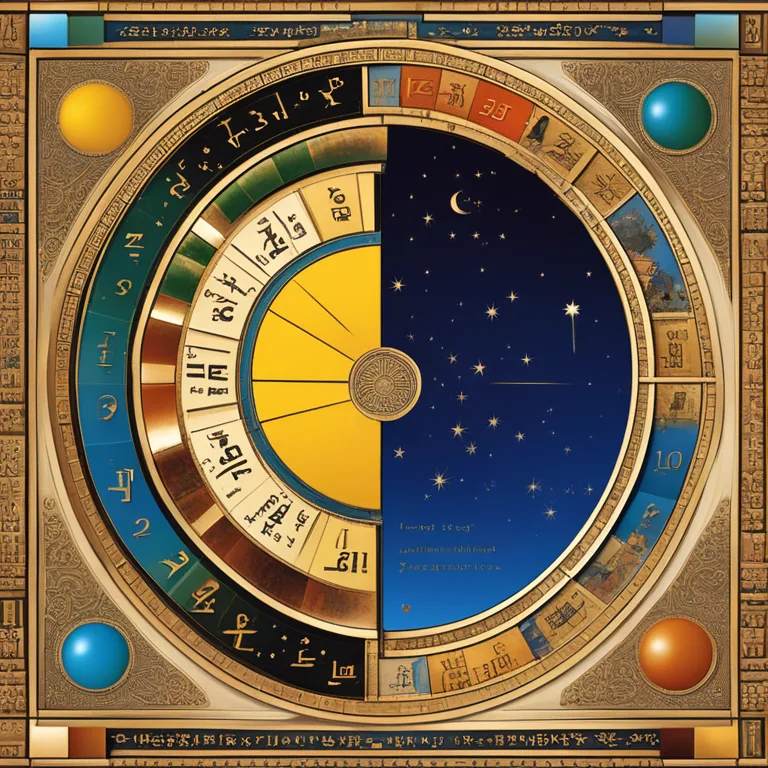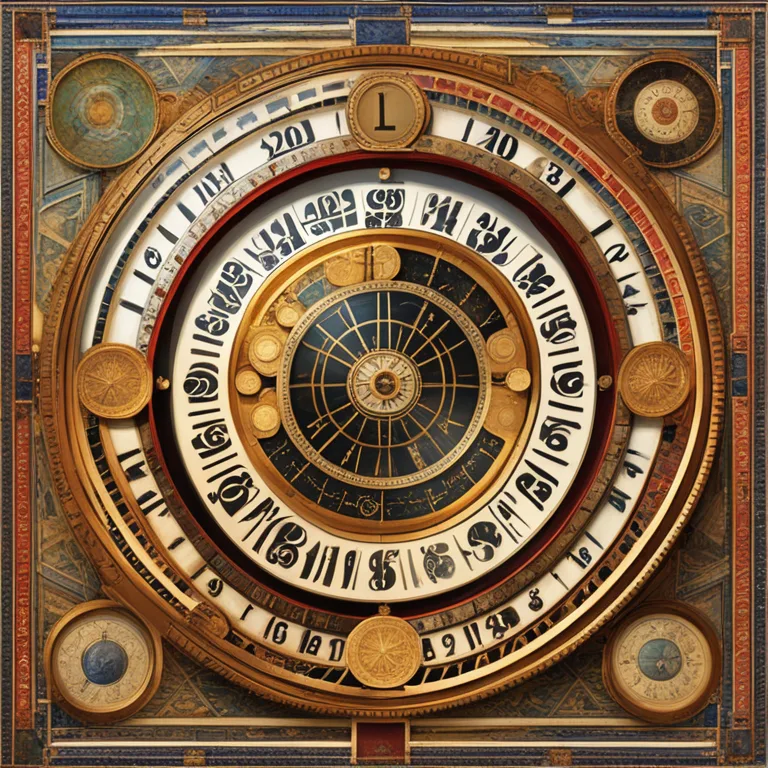
The Origins of Numerology: A Historical Insight
Embark on a journey through time to discover the enigmatic roots of numerology and its contributors to the mystic art.
article by Sofia Ferguson
The Ancient Beginnings
Although the precise moment of numerology's birth remains shrouded in history, we can trace its origin back to ancient civilizations. The Chaldeans of Babylon, known for their advanced knowledge of astrology and the occult, are credited with laying the groundwork for numerology. They combined their understanding of the celestial bodies with the numeric values of their cuneiform script to predict the future and understand the divine. Similarly, Pythagoras, the Greek mathematician and philosopher, is often celebrated as the father of numerology. His belief that numbers were not only mathematical symbols but also embodied spiritual properties, contributed significantly to the development of numerological principles that are still studied today.

Pythagoras's Numerological System
Pythagoras’s system of numerology is both mathematical and mystical. By dissecting numbers into their purest forms, he attributed unique characteristics, strengths, and weaknesses to each numeral. This esoteric knowledge quickly became an integral part of the philosophical teachings of his school. Clients would be assessed not just by their character or physical appearance, but also by the vibrations of the numbers associated with their names and birth dates. Pythagoras's teachings on the nature of numbers and their connection to the human soul set the foundation for modern-day numerology, making him a pivotal figure in the discipline's history.

Evolution Through Cultures
Numerology did not remain static with the Pythagoreans; it evolved as it spread across cultures. The ancient Egyptians, Chinese, and Hebrews independently developed their own systems, all predicated on the notion that numbers have inherent powers that can influence one's life and destiny. For example, the Kabbalistic tradition of Hebrew numerology, or Gematria, examines the numerical value of words to reveal deeper spiritual insights, whereas the Chinese placed great emphasis on the I Ching, which used numbers to chart the flow of energy in the universe.

The Revival in the Modern Era
In contemporary times, the interest in numerology was revived during the late 19th and early 20th centuries, as occult and mystical traditions gained new followers. Figures such as L. Dow Balliett and Florence Campbell built upon Pythagorean numerology, integrating it with modern psychology to give birth to the system that many practitioners use today. Their works combined spiritual elements with personal growth, exploring how numerology could offer insights into one's personality, purpose, and life path.

The Digital Age of Numerology
As we moved into the 21st century, numerology adapted to the digital world. Online platforms, software, and mobile applications have made it accessible to a broader audience. The ancient wisdom is being continually revised and expanded upon by numerologists and enthusiasts who contribute to an ever-growing body of knowledge. Remarkably, despite advances in technology and science, the fascination with the numerological significance of numbers has persisted, proving its enduring appeal and adaptability.
Numerology's Enduring Legacy
The beauty of numerology lies in its enduring and adaptable nature. Despite the passage of millennia, the core principle that numbers are more than mere digits remains unchanged. It is this mysterious charm that engages the imagination and summons us to explore further. So, while it is difficult to credit one entity with inventing numerology, it is an amalgam of ancient wisdom passed through time by various influential individuals and cultures. Its continued popularity ensures that numerology's construction is an ongoing process, shaped by numerous hands throughout the ages.
Published: 12/21/2023
Modified: 12/21/2023
More predictions
Come back here soon to learn more about yourself and your future


Astrological Guide To Friendship
Discover which zodiac signs make the best friends according to astrology, and find your most compatible astrological buddies.


Cancer & Libra Compatibility
Discover the dynamics of Cancer and Libra partnerships in love, friendship, and work with our in-depth compatibility guide.


Zodiac Friendship Compatibility Chart
Discover how your star sign aligns with others for platonic harmony using our Zodiac Friendship Compatibility Chart.